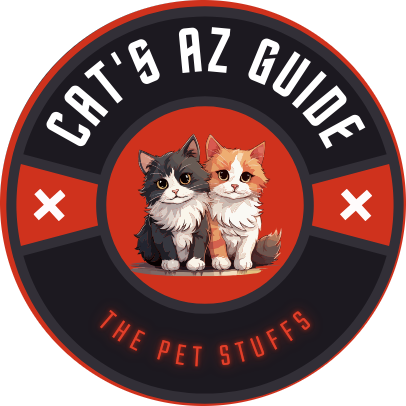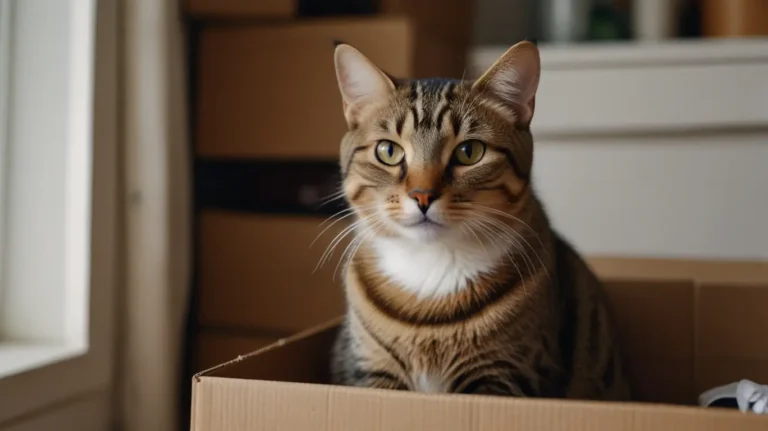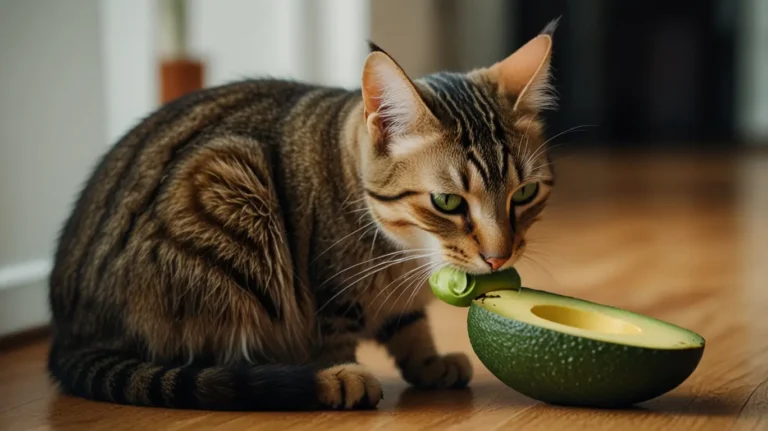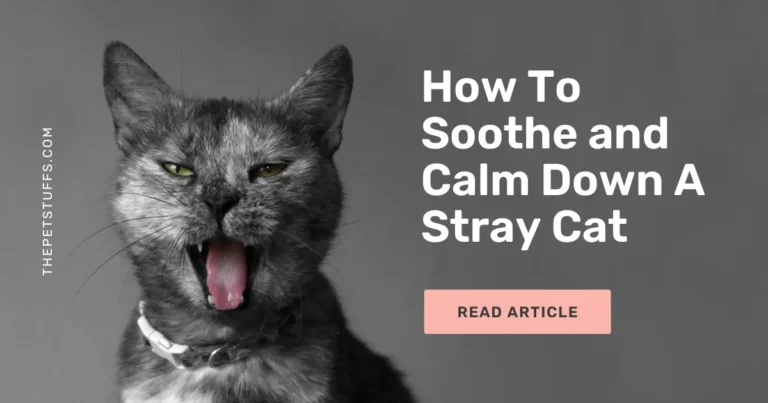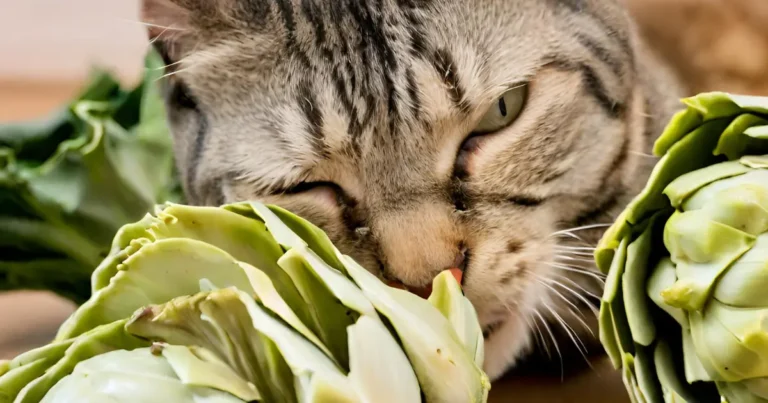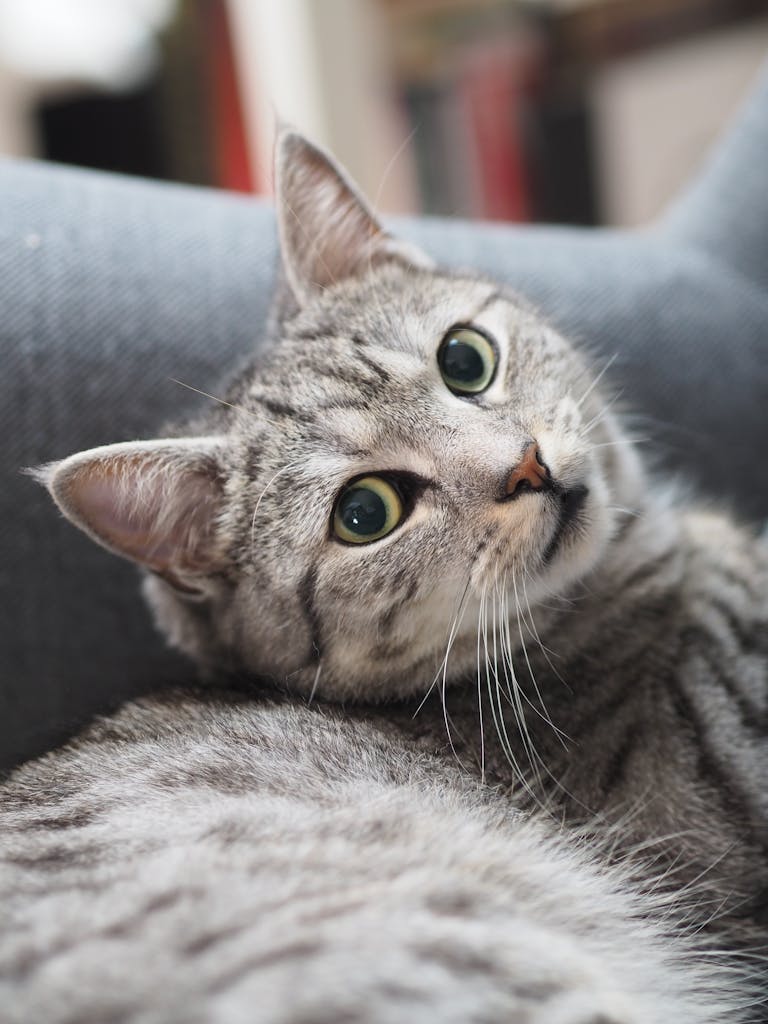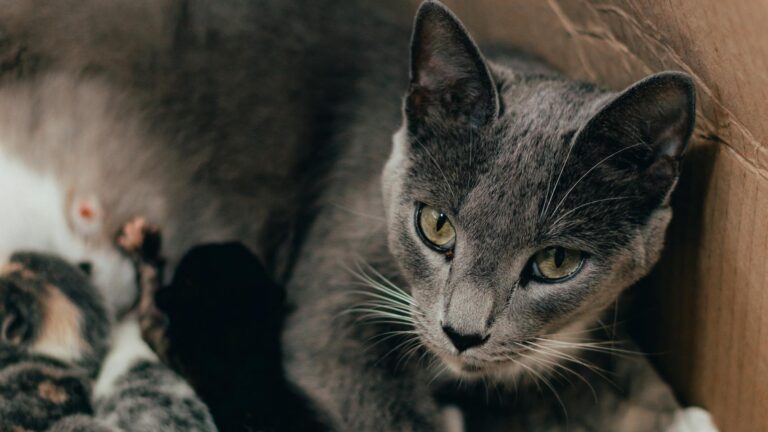Curious if Cats Can Eat Pickles? Here’s Why You Should Think Twice!
As a loving cat parent, you always want the best for your feline friend. But have you ever caught your curious cat sniffing or even licking your food, like a pickle? But you might wonder are pickles safe for cats? Is it safe for them to munch on this tangy snack, or could it pose a risk to their health?
The answer might surprise you. Let’s dive into the details and see why this seemingly harmless treat might not be the best idea for your cat.
Key Takeaways:
- Pickles and Cats: We’ll uncover are pickles safe for cats or harmful for your cat.
- Ingredients Breakdown: We will also explore in detail if the ingredients in pickles like salt and spices answer the question, are pickles safe for cats?
- Cat Behavior and Pickles: Find out why your cat might be drawn to this tangy snack.
- Health Risks: Discover the health implications of giving your cat pickles or pickle juice.
- Responsible Cat Parenting: Learn what to do if your cat consumes pickles and how to prevent future incidents.
Pickles With Their Types and Nutritional Analysis
Pickles are made from cucumbers, which are then fermented or pickled by soaking them in a solution of vinegar, water, salt, and various spices, often in a solution of vinegar, water, salt, and various spices. There are many types of pickles, such as bread and butter pickles, sweet pickles, and dill pickles. Dill pickles are the most common, flavored with garlic and dill weed, while sweet pickles contain sugar, and spicy versions include chili flakes or hot peppers. Each type of pickle has varying degrees of flavor and spice intensity.
See also Can Cats Eat Spinach?
While they make for a tasty snack for humans, these ingredients can be problematic for pets. But, are pickles safe for cats considering their nutritional content? Cats, being obligate carnivores, have a digestive system designed for meat. Foods high in sodium, vinegar, and spices—like pickles—are not part of a cat’s natural diet and may pose risks to their health.
| Nutrient | Content in Pickles | Impact on Cats |
| Sodium | High | Potential dehydration and electrolyte imbalances |
| Vitamins | Minimal | No significant nutritional benefit |
| Calories | Low | Not a concern, but offers no value to cats |
Why Pickles Are Not a Good Choice for Your Cat?
If you are thinking of sharing a bite of pickles with your feline friend, it is important to know that pickles are not a safe option for cats. One of the biggest concerns is the high sodium content. But ultimately, are pickles safe for cats when considering their sodium levels?
Pickles are soaked in brine, which is a salty solution that can cause salt poisoning in cats if consumed in large quantities. Even a small amount of sodium can upset your cat’s electrolyte balance, leading to dehydration, lethargy, and vomiting.
Additionally, the vinegar and spices used in pickles can irritate your cat’s digestive system. Vinegar is highly acidic and can upset your cat’s stomach, while spices such as garlic, onions, and even dill (common in many pickles) are toxic to cats. These ingredients can cause gastrointestinal distress, including diarrhea and vomiting, or even lead to more severe issues like anemia.
So, can cats eat pickles? The answer is no—it’s best to keep them away from this snack and stick to foods that are safe and designed for your cat’s well-being.
1. High Sodium Content
- Can lead to dehydration
- May cause electrolyte imbalances
- Potentially harmful to cats with existing health conditions
2. Lack of Nutritional Value
- Cats have specific dietary requirements
- Pickles do not fulfill any essential feline nutritional needs
3. Potential Digestive Issues
- Unfamiliar food can upset a cat’s stomach
- May lead to vomiting or diarrhea
Cat Behavior and Pickles

Cats are curious creatures, often intrigued by the scents and textures of unfamiliar foods, including pickles. This curiosity leads to the question: Are pickles safe for cats? While they may not be drawn to the strong, tangy taste of pickles, the smell of vinegar and spices might attract them due to their naturally inquisitive nature. Cats have a keen sense of smell, and the pungent aroma of pickles may pique their interest, even if it’s not something they’d normally eat.
That said, just because your cat shows curiosity doesn’t mean they should consume the food. Cats are obligate carnivores, meaning their bodies are designed to thrive on a meat-based diet. Non-meat foods, especially highly processed and spiced ones like pickles, offer no nutritional value to your cat and can even harm them.
See also Can Cats Have Artichokes?
Sometimes, cats might lick or nibble at a pickle out of sheer curiosity or to mimic their owner’s behavior. While an occasional lick likely won’t cause immediate harm, it’s crucial to monitor your cat and ensure they don’t consume any significant portion. Even a small nibble could lead to digestive upset.
Can Cats Eat Pickles?
So, can cats eat pickles? The short answer is no, they shouldn’t. To answer the question ‘are pickles safe for cats,’ the risks outweigh any potential benefits. Pickles are made with high amounts of salt, vinegar, and often harmful spices like garlic and onion—all ingredients that can be harmful to your cat. While cats may show interest in pickles, the potential risks far outweigh any potential benefits.
Even though a small taste might not cause immediate harm, regular or large consumption can lead to health issues like salt poisoning, digestive upset, or even long-term kidney problems. Pickles are not part of a balanced, meat-based diet that cats need for optimal health.
If your cat seems interested in pickles, it’s best to redirect their curiosity with a cat-friendly treat. Always prioritize your pet’s well-being by avoiding foods that could harm them.
Can Cats Eat Pickle Juice?
Pickle juice is very high in sodium, which can cause salt sickness in cats; therefore, even a small amount of sodium can harm your cat. Pickle juice contains vinegar, which can irritate the stomach and cause vomiting or diarrhea.
So, are pickles safe for cats, especially in the form of pickle juice? Also, any spices or ingredients in the juice like garlic or onion powder can cause a serious problem to your cat’s health. This is why cats should avoid drinking pickle juice. Therefore, keep your cat away from pickle juice.
See also Are Orchids Safe for Cats?
If your cat accidentally drinks a small amount of pickle juice, monitor them for signs of dehydration or upset stomach. If they seem unwell, it’s important to consult your veterinarian promptly. The safest route is to keep all forms of pickles and their juices out of your cat’s reach.
Can Cats Eat Pickle Seeds?
Pickle seeds themselves aren’t inherently toxic to cats, but that doesn’t mean they are safe. The seeds absorb the brine and spices from the pickle, which are harmful to cats due to the high salt and vinegar content. Additionally, some pickles contain seeds from spices like mustard or coriander, which can cause digestive issues in cats, including stomach upset and vomiting.
Even though your cat won’t die from a small amount of pickle seeds, it’s still a good idea to keep them away. It’s best to proceed with caution as this can cause gastrointestinal upset and salt sickness. Keep an eye out for any signs of discomfort if your cat eats pickle seeds and contact your vet if this occurs.
Effects on Health of Excessive Use of Pickles

Feeding your cat pickles, even in small amounts, can have serious health consequences, Thus, are pickles safe for cats, especially if done so frequently or in large quantities? The high concentration of sodium in pickles can cause salt sickness in cats, which impairs kidney function and electrolyte balance. Symptoms of salt poisoning include vomiting, diarrhea, excessive thirst, lethargy, and in severe cases, convulsions or death.
Beyond sodium, the vinegar used in pickling can irritate a cat’s digestive system, leading to upset stomach, nausea, or diarrhea. Regular exposure to vinegar can also cause long-term harm to your cat’s gut health. Spices such as garlic, onions, and hot peppers—often present in pickles—are toxic to cats, and even small amounts can lead to anemia or other serious health conditions.
See also Can Your Cat Catch Lice from You?
In the long run, feeding your cat foods like pickles that are high in salt, vinegar, and spices can strain their kidneys and liver, potentially leading to chronic conditions. It’s always safer to avoid giving your cat pickles and opt for treats specifically designed for feline health.
My Cat Licked a Pickle, Is That Okay?
If your cat has only licked a pickle, there is no immediate cause for concern. A single lick usually does not contain enough harmful substances to cause a serious problem. However, it is still important to keep an eye on your cat for any signs of distress, such as vomiting, diarrhea or lethargy, which may indicate a reaction to the salt or vinegar.
Even a small amount of licking may not be harmful, but it is crucial to prevent this tendency in the future. The high concentration of salt, vinegar, and spices in pickles is very much for your cat’s digestive system. In case of show any signs of anxiety after the pickle-licking behavior, visit your veterinarian for advice.
Remember, prevention is always better than cure. Keeping pickles out of your cat’s reach is the best way to ensure that your cat remains safe from potential food-related hazards.
What You Should Do as a Responsible Cat Parent?
As a responsible cat parent, it is essential that you keep an eye on what your cat eats and avoid feeding it harmful foods like pickles. The first step is to make sure your kitchen and dining area are cat-proofed so that human foods that are dangerous for cats, like pickles, are out of their reach.
You should also be familiar with all foods made with onions, garlic, high-sodium foods, and spices that are toxic or dangerous for cats. If your cat is interested in eating human food, give them snacks that are safe for cats. These are specifically designed to meet their dietary requirements without endangering their health.
See also Can Cat Pee Cause You High?
If your cat has accidentally eaten something it shouldn’t, like pickles or another harmful food, it is important to take immediate action. Keep an eye on your cat to see if it is upset and if you notice any unusual behavior, consult your veterinarian.
Taking action immediately can prevent more serious health complications and ensure that your cat stays healthy. Now that we’ve answered, Are pickles safe for cats? ensure you avoid giving them any form of pickles.

To ensure your cat’s health and well-being:
- Stick to a veterinarian-recommended diet
- Avoid sharing human foods, especially those high in sodium
- Before feeding any new foods to your beloved feline companion, consult a vet.
- Provide safe, cat-appropriate treats when rewarding your pet
FAQs About Are Pickles Safe For Cats?
Can pets eat pickles?
No, pets like cats and dogs should not eat pickles due to the high salt, vinegar, and spice content.
What happens if a cat drinks pickle juice?
Drinking pickle juice can lead to salt poisoning and digestive issues in cats, which may require veterinary attention.
Can cats have a little pickle?
It’s best to avoid giving even small amounts of pickle to cats, as the ingredients can be harmful.
What tastes bad to cats but is harmless?
Bitter apple spray or citrus are unpleasant to cats but safe.
Can cats eat cucumbers?
Yes, plain cucumbers are safe for cats in moderation, but not when pickled.
Are any spices safe for cats?
Most spices are not safe for cats, especially garlic, onion, and chili. Stick to plain meats and cat-safe treats.
Can cats safely eat pickles?
No, pickles are not safe for cats. Amount of sodium in this can lead to dehydration and electrolyte imbalances in cats.
Why is sodium bad for cats?
High sodium content can cause dehydration and disrupt the electrolyte balance in cats. This can be especially harmful to cats with preexisting health conditions.
Closing Thoughts
In conclusion, can cats eat pickles? The answer is a firm no. While cats may be intrigued by the scent or texture of pickles, the risks far outweigh any potential benefits. Pickles are packed with sodium, vinegar, and harmful spices that can lead to health problems such as salt poisoning, digestive upset, and in severe cases, more serious conditions like kidney damage.
See also Can Cats Eat Coconut?
As a responsible pet owner, it’s important to provide a healthy diet for your cat while preventing access to potentially harmful items. If you are thinking of introducing new food to your cat’s diet always consult your veterinarian. A balanced diet for cats can aid their growth and development.
